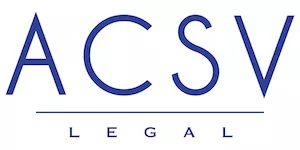- within Government and Public Sector topic(s)
- with readers working within the Retail & Leisure industries
The current Law on E-Transactions of Vietnam, which entered into force in March 2006, demonstrates limitations in managing new issues emerging from technological applications developing in the nation. After more than 17 years, the law fails to govern situations beyond its original scope. The draft amended Law on E-Transactions was first released on 4 May 2022 by the Ministry of Information and Communication (the MIC). The new law is expected to update and refine the existing legal framework to keep pace with the potential ramifications of the rapidly evolving landscape of e-commerce and digital technology. After several amendments and following the conference held by the National Assembly's Standing Committee on 20 February 2023, the fourth revised draft (the Draft Law) was released for public comment (the "Draft Law").1 In this Legal Update, we will discuss several notable changes to the regulations under the Draft Law in comparison with the Current Law.
1. Scope
The coverage of the Draft Law will be expanded to encompass areas excluded under the Current Law, such as:
- Issuance of certificates of land use rights and ownership of real estate property;
- Inheritance records;
- Marriage certificates;
- Divorce decisions;
- Birth and death certificates; and
- Bills of exchange.
This broader scope under the Draft Law enables e-transactions across more sectors through the inclusion of previously omitted areas of business and governance. However, the allowability of full, partial, or prohibited transition to electronic formats for a given transaction depends on the substantive laws governing that transaction's requirements.
2. E-signatures
Under the Current Law and Decree No. 130/2018/NDCP guiding e-signatures, a document that contains an e signature, is deemed to be legally valid if it satisfies the following conditions:
- A valid digital certificate verifies the e signature and/or e-stamp;
- The e-signature generated using the corresponding private and/or public key recorded on the digital certificate which was issued by authorised Vietnamese government agencies or certified organisations; and
- The private key is under the sole control of the signatory at the time of signing.
Accordingly, only e-signatures that are certified with a digital certificate granted by competent authorities are currently recognised as legally valid.
In addition to the recognition of legally enforceable e-signatures meeting required standards, the Draft Law introduces a new concept of a private electronic signature (PES), which any organisation can create for internal use. The validity of a PES is only recognised if registered MIC. Following the enactment of the new law, MIC will provide detailed guidance on conditions PES must meet for legal recognition and steps to register them.
Like the Current Law, the Draft Law appears to tie the legal validity of an e-signature to asymmetric cryptography technology. Each e-signature will only be legally enforceable if generated through this technology.
3. Trust Services
In general, 'trust services' in e-transactions refer to the mechanisms and processes that establish the security and integrity of e-transactions, particularly those involving the exchange of sensitive or confidential information. The Draft Law establishes three categories of trust services:
- Timestamp Generation Service;
- Data Message Certification Service; and
- Public Digital Signature Certification Service.
These services are not novel and were already addressed under Decree No. 130/2018/ND-CP. However, in the Draft Law, they are codified and collectively named as 'Trust Services'. The Draft Law explicitly specifies that any providers deemed to provide 'Trust Services' must obtain eligibility licenses issued by MIC to provide these services.
4. E-Contract
Furthermore, the Draft Law not only acknowledges the legal validity of e-contracts but also introduces new regulations to facilitate the formation and completion of e-contracts via 'automated information systems'. Although the Draft Law does not provide further guidance on implementing e-contracts through these systems, these regulations anticipate legitimising their application as a valid means of agreement reducing both time and cost. These systems pursue streamlining contract administration by instantly rendering contracts with data and contract-specific inputs.
5. Open Data
The Draft Law also supplements new provisions regarding open data from state agencies; defined as 'data' made available by an agency for public use, reuse and distribution without restriction'.
Without needing identification, organisations and individuals are allowed to access and use open data without restriction. They may also freely copy, share, exchange it, combine it with other existing data, and use it in both for-profit and non-profit activities. However, they are not allowed to sell open data that has been used by state agencies.
Businesses and investors in Vietnam can leverage public data to gain insights, make informed decisions, and develop business strategies. One example of open data in Vietnam is data about enterprise registrations, which can be found and accessed on the official website of the National Business Registration Portal (i.e., https://dangkykinhdoanh. gov.vn/). This website provides access to information including the enterprise's legal name, registration number, business type, business address, and owner or legal representative.
6. Admissibility of Digital Evidence
The Draft Law retains provisions from the Current Law re-affirming that a 'data message', which refers to an electronic message or communication that contains data, information, or instructions transmitted or stored through electronic means, shall not instantly be dismissed as evidence. However, to be fully accepted as evidence, it must meet certain conditions.
The Draft Law refers to the procedural laws of Vietnam to further explain and verify digital evidence validity or admissibility. However, the prevailing procedural laws lack specific regulations about this issue. Therefore, the party relying on an electronic message as evidence needs to prove its admissibility. The court or tribunal will then accordingly evaluate the electronic message and decide admissibility or probative value based on the specific circumstances of the case as well as the applicable laws and regulations.
7. Conclusion
It is expected that the Draft Law will be approved at the 5th Conference of the National Assembly's Standing Committee which will be held in May 2023. The Draft Law anticipates popularising the use of e-signatures for legal documents.
The content of this article is intended to provide a general guide to the subject matter. Specialist advice should be sought about your specific circumstances.




